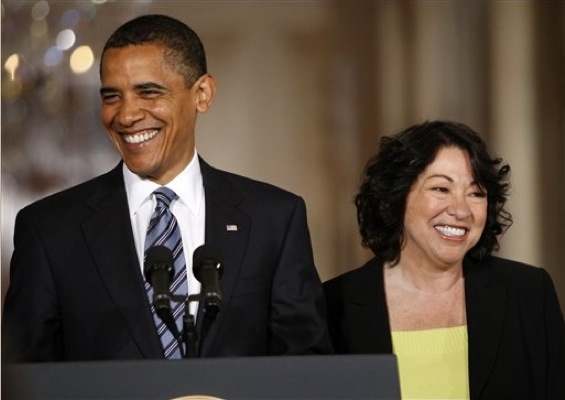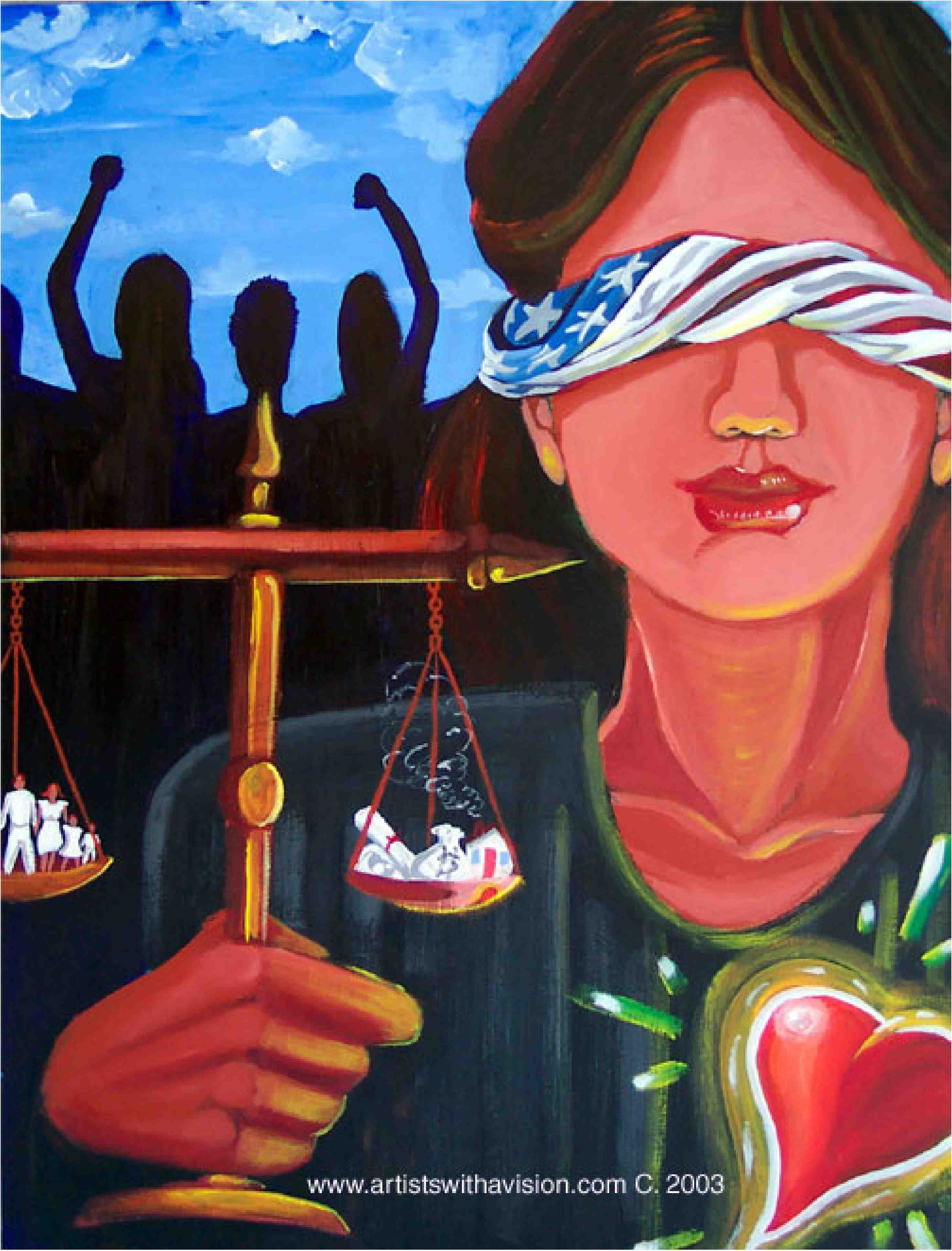|
SOC 335 Winter 2011  
 |
|
SOC 335 Winter 2011  
 |
This course explores the rich and diverse
sociological
experiences
of the Latino peoples in the United States in four distinct angles. The
first one, more geographically delimited, is the experience of the
first large waves of Mexican worker migration, repatriation, and
settlement in California's agricultural regions in the first four
decades of the 20th century, just before the Second World War. The
second one, on a broader geographical and historical scale, covers more
than a century of US Southwest history and examines the ways that
continuous Mexican migration to and from the region deeply transformed
the political, social, and cultural life of the region, especially the
evolution of the growing Mexican American communities' sense of social
and cultural identity, shaping the trajectory of the emerging Mexican
American civil rights movement up to the 1950s. These two historical
explorations will prepare the student well to understand the rich
historic roots and context of the first nationwide panethnic Latino
revolt of the late 1960s up to the mid 1970s (e.g., the more famous
Chicano Movement, or the United Farm Worker Union movement). These
movements will then be the topics of the first research papers
assigned, topics the students will then choose and explore on their
own. The third domain of exploration is the contemporary sociological
condition of all U.S. Latino communities, who together add up to over
50 million people, a third of which are immigrants, constituting the
largest and fastest growing panethnic group in the United States, with
increased levels of political mobilization, economic weight, and
demographic impact. The fourth area intensely affecting the Latino
communities in the U.S. that we will explore is the debate over
reforming the U.S. immigration regime for the new century, specially as
it relates to the U.S.-Mexico relationship. We will purposely study an
alternative vision of how U.S. borders might be reconfigured, grounded
in moral, economic, and policy arguments for open borders. Students
will then explore other aspects of the immigration issue for their
second research papers.
The course will be run in a seminar
format. Students will form thirteen groups ("grupos") of up to four students
each, and, after the first week of class, will take turns introducing
and analyzing the assigned readings for each session, followed by class
discussion, with Dr. Santos participating. Every student group
will present twice to the class during the quarter. That way each student will
be asked to prepare and deliver two class presentations during the
quarter, in coordination with his/her grupo.
Attendance is absolutely mandatory (please, no tardiness or early
departures, as
these too will be penalized). ALL students must come prepared to
discuss
the assigned readings for each class session - a policy that will be
implemented by each student either by giving a formal presentation that
day, or, when he/she is not presenting, by bringing to class their reading assessments.
The reading assessments must be turned in to Dr. Santos at the
beginning of each class session. (No late submissions will be accepted.)
Apart from the two group class presentations and the submitted reading
assessments, the students will collaborate within their groups to
identify, organize, divide up, research and write two
research topic projects, consisting of individual research papers
around a common topic related to the Latino experience in the
United States.
Class
Presentations: At the
beginning of the course, the students will be organized in thirteen
groups of up
to four students each. On those dates identified in the schedule
below, groups
will make their PowerPoint presentations on their assigned readings --
groups
can expect to present twice in the quarter. Class discussion will
follow the presentations. On Fridays, Ms. Ana Montoya, our Teaching
Assistance, will lead the class discussions.
Please email Dr. Santos an electronic
copy of your presentation. Time allotted per individual presentation
will be 6 to 10 minutes. Each presenting student will introduce,
describe, highlight, and summarize his/her own portion of the assigned
readings, and on the last slide raise one relevant, interesting
question for subsequent
discussion. Each student should insert appropriate quotes, charts, and
figures from the portion of the textbook he/she is covering, apart from
his/her own narrative. Please avoid cluttered slides, full of tiny font
text or messy backgrounds that render the text unreadable - make more
slides! Images are welcome, as long as they are relevant, informative,
and will be explained (especially charts).
As a precaution, please bring your
presentations in a
USB-type memory stick and also email it to your own email
account. DO NOT BRING YOUR POWERPOINT PRESENTATION IN FORMAT ".pptx" or
"ppsx", as the class computer MAY NOT READ IT (only use "ppt" or "pps"
formats). When it's your turn to present, please show up EARLY to
set it
up & test it. It is each group's responsibility to coordinate their
presentations so that there will be minimum
overlap between them.
Each presentations will be graded based on: (a) the analytical strength
of the presentation (how well it was
organized and covered the topics selected), (b) critical thinking, original materials
added, and relevance of topics covered;
(c) the relevance and quality of the
question posed
at the end, (d) the quality
of the visuals used, and (e) the
quality
& style of the oral delivery (communication skills).
Reading Assessments: To ensure that everybody come to every
class prepared to discuss the assigned readings, students who are not
presenting must bring to class one written "reading assessment"
per
chapter assigned, each up to two pages in length, double-spaced,
one-inch margins, font 12 text. Dr. Santos may randomly select a couple
of students to read their assessments and/or questions in the
discussion period. No late reading assessments will be
accepted, unless the student has a pre-authorized absence from Dr.
Santos. PLEASE DO NOT SEND YOUR READING ASSESSMENTS BY EMAIL.
CONTENT: Please always write on top of your
reading assessments your name, the date, and the title of the reading
you are
assessing. In contrast to the presentations, these
"reading assessments" must not
summarize or merely describe the readings, but must critically respond to them: express what the you think about them; identify the
areas of strong agreement and
disagreement with the author, explaining why you do, as well as
the areas or topics you find most
interesting to discuss, or anything in particular that impressed you greatly, caused you confusion, or surprise. Whatever you choose to
write, you
should explain your specific
academic and/or personal reasons for doing
so. The reading assessment cannot and should not cover every issue found in the assigned
readings for the day; you must be selective
and demonstrate judgment
in the choices of topics you make to analyze (by the way, early topics
are always
suspect!). A very bad
assessment will reveal the student read very
little or very superficially just to do the assignment (it's called
"just going through the motion"). A good
assessment will demonstrate the
student really read the material and did a serious effort to select and
critically grapple with some of the main issues raised. At the end of
each reading assessment, students should always write their own
question for class discussion.
IMPORTANT NOTE:
Students
presenting on a given day do not
need to submit ANY reading assessments FOR THAT DAY.
Research Papers: Students
in each grupo will also be asked twice during the quarter to
chose a
pertinent sociological topic related to two periods of the Latino
experiences in the United States, and design, organize, and carry out a
written group
research project on them. The first
research project topic should be related to the great panethnic
rebellion of various Latino communities in the United States, from the
late 1960s to the mid-1970s. The second research project topic should
be related to the contemporary U.S. immigration issue. The students
must obtain approval
from
Dr. Santos
for both their overall grupo topic, as well as for each of
their
individual
subtopics at least three weeks prior to the project deadlines.
Grupo
delegates may visit Dr. Santos for this purpose during his office hours
posted above.
Extra Points: Perfect attendance (allowing for excused absences) will be rewarded with up to five extra points. Another way to get extra credit is to attend those campus or public events Dr. Santos announces in class and write a two-page report on each of them. Another way is this: there are two general studies courses that students are strongly encouraged to take if they wish to develop their research skills, and if they do (either or both) will receive extra credit in this course: These courses will enable students to develop the necessary competencies to navigate their way around the complexities of researching print and electronic sources. For further information contact librarian Christy Gavin (email: <cgavin@csub.edu>, phone: 661-664-3237).
Plagiarism: To prevent students from wittingly or
unwittingly engaging in plagiarism, Dr. Santos strongly recommends
students to carefully read and abide by the document CSUB
Classifications of Plagiarism found at: http://www.csub.edu/tlc/options/resources/turn_it_in_help_page.shtml
Anyone found guilty of engaging in
plagiarism will
automatically fail the course and be reported to the Office of Student
Discipline and Judicial Affairs for further disciplinary action.
Grading: Each class presentation is worth 10 points each, individually assigned. Each research paper is worth 20 points, individually assigned. The reading assessments are worth in total the remaining 40 points. The extra credit students may receive for taking the suggested General Studies courses will depend on their final grade in those courses, and may range from zero to 6 points (up to 3 extra points per course). Perfect attendance will also be rewarded with 5 extra points; un-excused absences and tardiness/leaving early will be penalized with one point off per instance. The final letter grade will be assigned, on a scale of 0 to 100, as follows:
| 94-100 = A | 87-89 = B+ | 77-79 = C+ | 65-69 = D |
| 90-93 = A- | 84-86 = B | 74-76 = C | < 65 = F |
| 80-83 = B- | 70-73 = C- |
Office Hours & E-Mail to Dr. Santos & Ms. Ana Montoya:
All students are encouraged to visit Dr. Santos and/or Ms. Ana Montoya regularly during their posted office hours: to plan for or go over their presentations (Ms. Montoya); to ensure their grupo research project topics and subtopics (Dr. Santos); to make sure their individual research papers are well focused, or to discuss any question from the class lectures, the textbooks, or their grupo class presentations (both). Consultation and approval of the grupo research topics must be done in person at Dr. Santos office by representatives of each grupo - no emails on that subject, please - at least three weeks before the research papers are due.
Dr. Santos much prefers students to come to his
office
during his office hours, or to call him by phone, rather than to
receive
e-mail
messages
that require more than a very short one-line reply - he appreciates the
ease and fun of talking face-to-face - as opposed to
typing! But
if you wish to send Dr. Santos a brief, to-the-point
message,
you may do so at his email address above. The same applies to Ms.
Montoya. She will be in class on Fridays and hold office hours
immediately after those classes.
Schedule of
Reading Assignments & Grupo Presentations
| Monday |
Wednesday |
Friday |
--- |
Jan. 5 Introduction to the Course |
Jan. 7
NO GRUPO Dr. Santos Lecture: How Latinos became historically incorporated into the United States |
| Jan. 10
Grupo 1 Mexican Workers & American Dreams Intro. & Chapter 1 |
Jan. 12
Grupo 2 Mexican Workers & American Dreams Chapter 2 |
Jan. 14
Grupo 3 Mexican Workers & American Dreams Chapter 3 |
| Jan. 17 HOLIDAY - NO CLASS |
Jan. 19
Grupo 4 Mexican Workers & American Dreams Chapter 4 |
Jan. 21
Grupo 5 Mexican Workers & American Dreams Chapter 5 |
| Jan. 24
Grupo 6 Mexican Workers & American Dreams Chapter 6 |
Jan. 26
Grupo
7 Walls & Mirrors Intro. & Chapter 1 |
Jan. 28
Grupo 8 Walls & Mirrors Chapter 2 |
| Jan. 31
Grupo 9 Walls & Mirrors Chapter 3 |
Feb. 2
Grupo 10 Walls & Mirrors Chapter 4 |
Feb. 4
Grupo 11 Walls & Mirrors Chapter 5 |
| Feb. 7
Grupo 12 Walls & Mirrors Chapter 6 & Epilogue |
Feb. 9
Grupo 13 Latino Lives in America Chapter 1 |
Feb. 11
NO GRUPO - 1ST PAPERS DUE Discussion on First Research Projects on Latino Panethnic Rebellions of the 1960s & 1970s |
| Feb. 14
Grupo
1 Latino Lives in America Chapter 2 |
Feb. 16
Grupo 2 Latino Lives in America Chapter 3 |
Feb. 18
Grupo 3 Latino Lives in America Chapter 4 |
| Feb. 21
Grupo 4 Latino Lives in America Chapter 5 |
Feb. 23
Grupo 5 Latino Lives in America Chapter 6 |
Feb. 25
Grupo 6 Latino Lives in America Chapter 7 |
| Feb. 28
Grupo 7 Latino Lives in America Chapter 8 |
Mar. 2
Grupo 8 Opening the Floodgates Chapter 1 |
Mar. 4
Grupo 9 Opening the Floodgates Chapter 2 |
| Mar. 7
Grupo 10 Opening the Floodgates Chapter 3 |
Mar. 9
Grupo 11 Opening the Floodgates Chapter 4 |
Mar. 11
Grupo 12 Opening the Floodgates Chapter 5 |
| Mar. 14
Grupo 13 Opening the Floodgates Chapter 6 |
||
| The 2nd.
grupo
research projects are
due
by noon, Wednesday, March 16, at Dr.
Santos' office |
||
My GRUPO
# is: _____
We
present on these dates:
___________ and ___________
My Own Research
Subtopic # 1
is:___________________________________________________________
My GRUPO Research Topic # 2 is:__________________________________________________________
My Own Research
Subtopic # 2
is:___________________________________________________________
My GRUPO members are:
___Name______________________Phone_____________________Email_________________________________
1._____________________________________________________________________________________________
2._____________________________________________________________________________________________
3._____________________________________________________________________________________________
4._____________________________________________________________________________________________